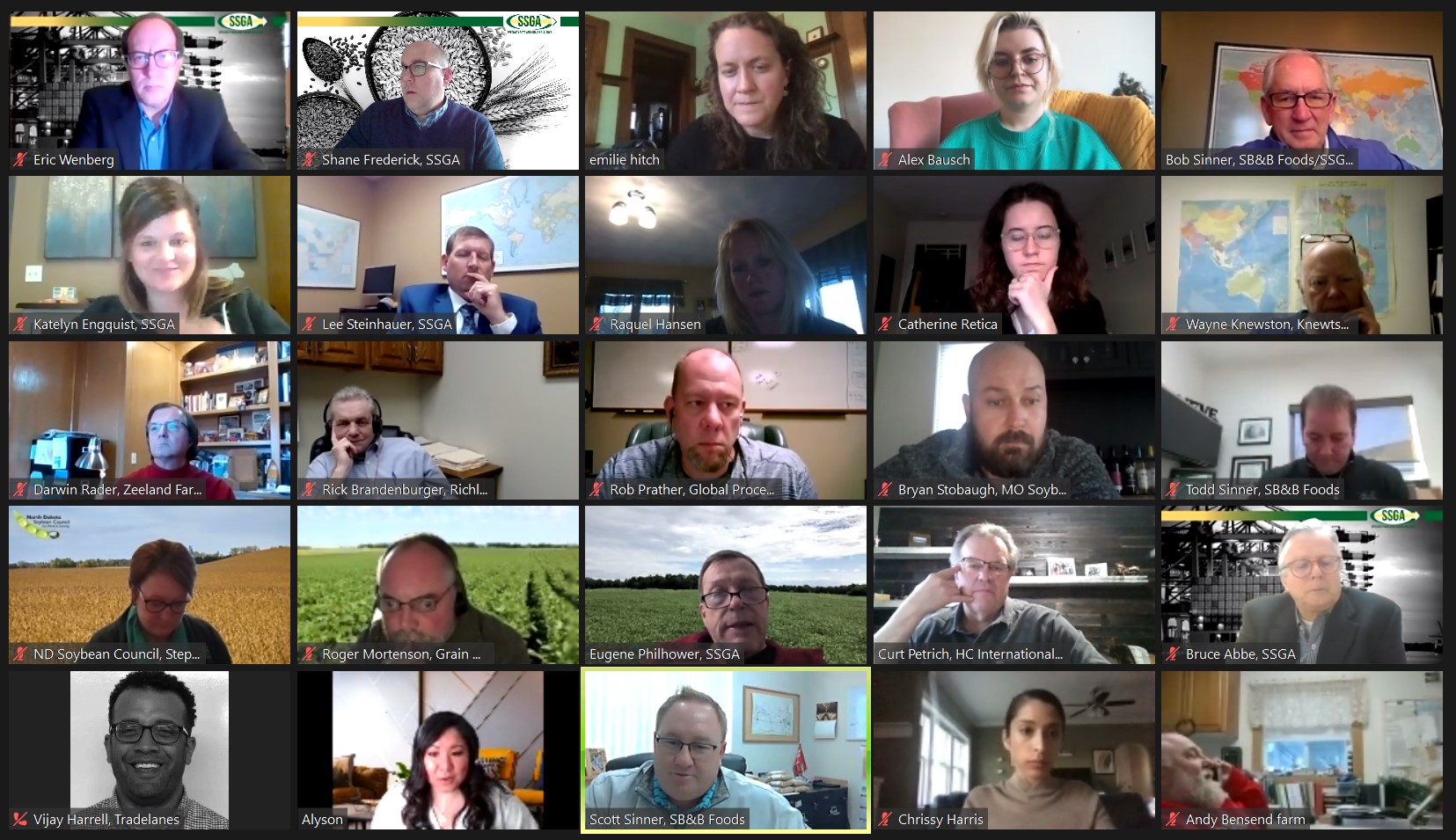SSGA annual meeting kicks off with robust agenda
 Eager to see the progress of a U.S. identity preserved (IP) brand image and strategy project – as well as to hear insights and information about shipping and trade, food grade soya, and specialty grains, more than 70 people logged on and participated in the Specialty Soya and Grains Alliance’s (SSGA) 2020 Annual Meeting on Wednesday afternoon.
Eager to see the progress of a U.S. identity preserved (IP) brand image and strategy project – as well as to hear insights and information about shipping and trade, food grade soya, and specialty grains, more than 70 people logged on and participated in the Specialty Soya and Grains Alliance’s (SSGA) 2020 Annual Meeting on Wednesday afternoon.
Wednesday was the first day of the two-day meeting, which is being held virtually on Zoom due to COVID-19 gathering restrictions.
Most attendees were getting their first chance to see some initial creative concepts and hear about the research and data behind them as Emilie Hitch and Alex Bausch of Rabbit/broadhead reported on the brand project, which strives to communicate to foreign buyers that the U.S. is a high-quality origin for U.S. IP crops and differentiate them.
“This is the reason SSGA exists,” SSGA Executive Director Eric Wenberg said.
Hitch, Rabbit’s vice president of brand strategy, said the strategic platform centers around three “pillars of premium”: food safety, verifiable and American grown.
The next steps will involve discussion of brand usage, and SSGA is planning a webinar in early January.
The busy day began with sponsor speaker Vijay Harrell, founder and CEO of Tradelanes. Harrell’s presentation focused on resiliency and the challenges and opportunities that exist along the IP value chain for SSGA members.
“Technology is a key to achieving resiliency,” said Harrell, whose SSGA-member company is dedicated to transforming global commodity trade digitally to decrease costs and time.
Ed Beaman, chief operating officer of the U.S. Soybean Export Council (USSEC), spoke next as part of SSGA’s Food Grade Soya Action Team meeting. Beaman reported on the success of and stellar reviews for the U.S. Soy Global Trade Exchange & Specialty Grains Conference (GTE), held virtually in August, and gave an update on the U.S. Soyfood Variety Database, which is scheduled to go live in early 2021.
Beaman also led a discussion on market access in India, a “perennial potential’ market.” He said USSEC and SSGA both need to be involved in work to open the Indian market where “there’s a keen and growing interest in U.S. IP soy among soy food processors.”
Wenberg and Food Grade Soya Action Team chair Todd Sinner then reported that SSGA and the U.S. Department of Agriculture’s Animal Plant Health Inspection Service (APHIS) have been discussing ways that could, in a limited way, facilitate a phytosanitary process that helps reconcile the issues faced in certifying for export from remote or hard-to-reach, expensive, and logistically challenging locations in the United States. This was a continuation of discussions that were precipitated by the certificate crisis earlier this year with Japan.
“We need to find ways to keep a project manageable and narrowly defined to fit within current eligibilities,” Wenberg said.
SSGA’s Specialty Grains Action Team presented next, led by Lee Steinhauer, SSGA market development project manager. Consultant Dave Miller spoke about market trends for specialty grains, saying “there is a ton of momentum, especially in baking and brewing” for these “unique products.” SSGA technical advisers Gene Philhower (Europe), Alyson Segawa (North Asia) and Hoa Huynh (Southeast Asia) then reported on international opportunities for specialty grains.
(To see video reports from SSGA’s technical advisers, please follow this link.)
The SSGA annual meeting continues Thursday at 1 p.m. CST (attendees should plan to log-in early so the meeting can start on time and stay on schedule). The agenda includes the SSGA business meeting and board elections, keynote speaker Polly Ruhland, CEO of United Soybean Board, as well as an interview with organic farmer Carolyn Olson.







Leave a Reply
Want to join the discussion?Feel free to contribute!